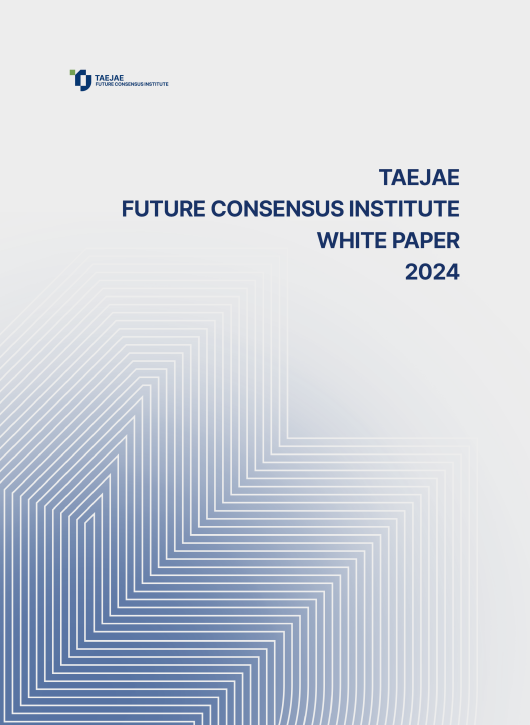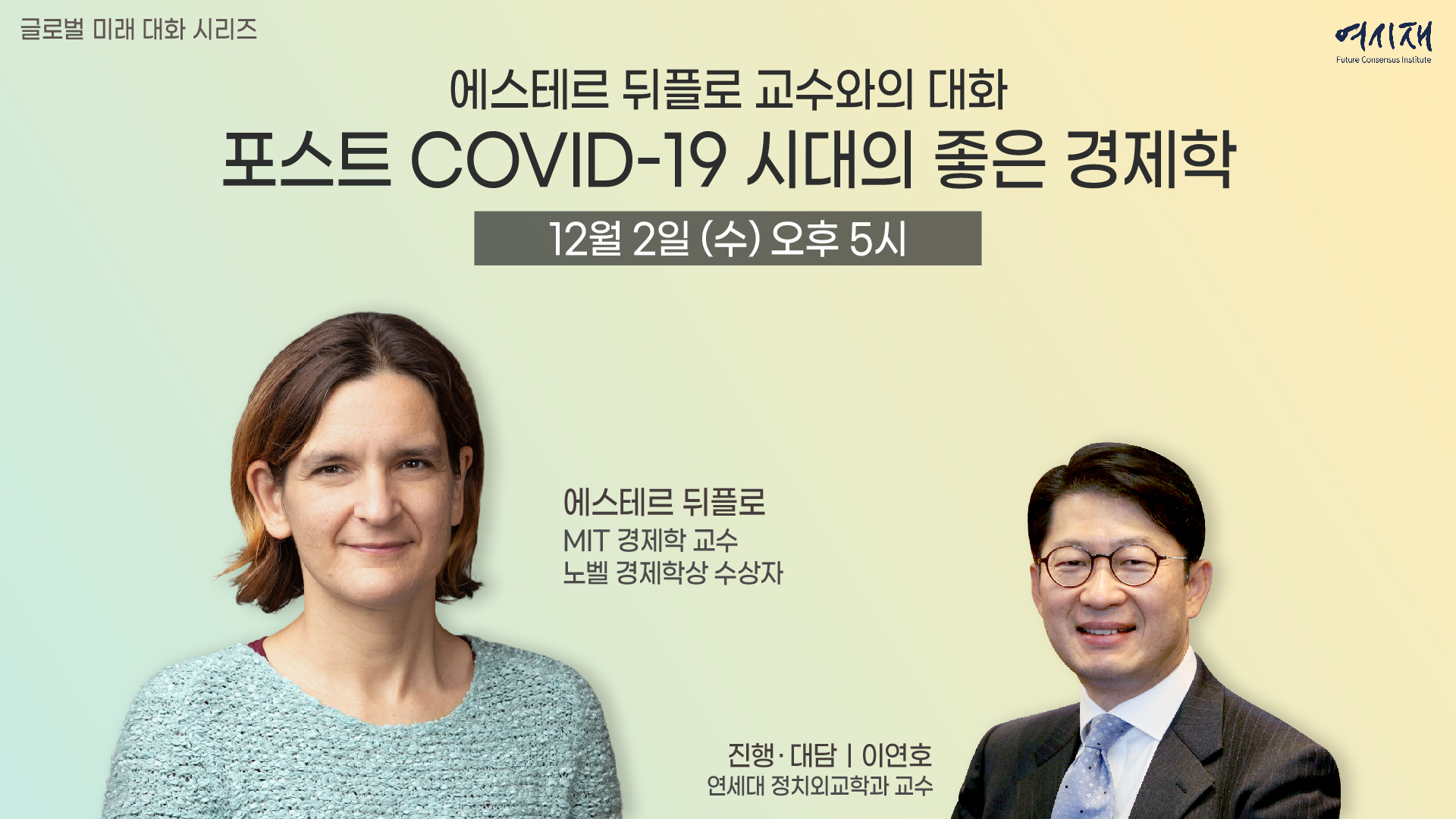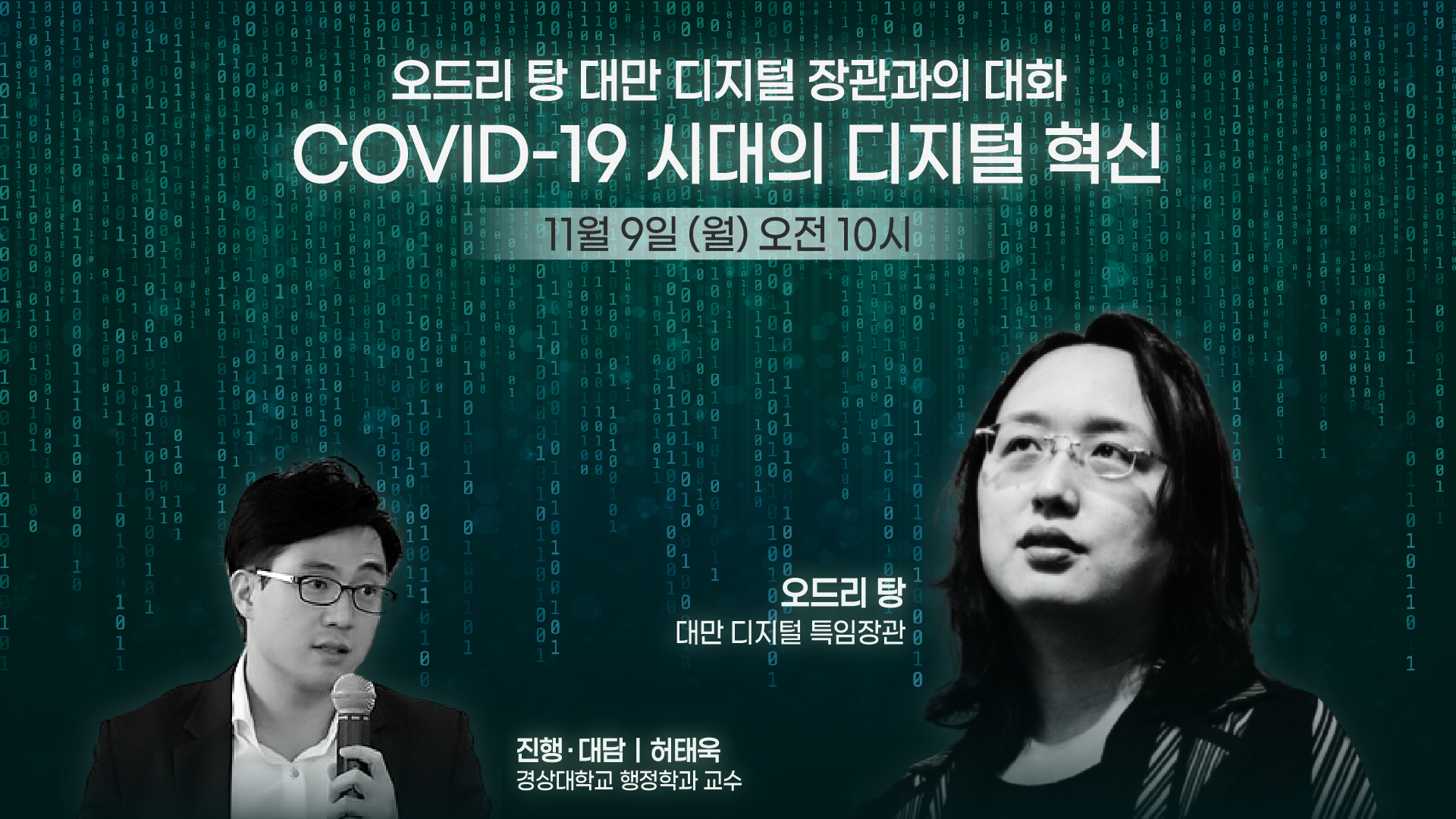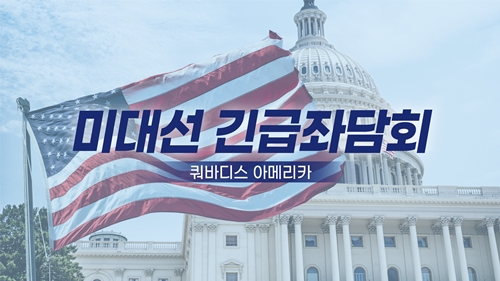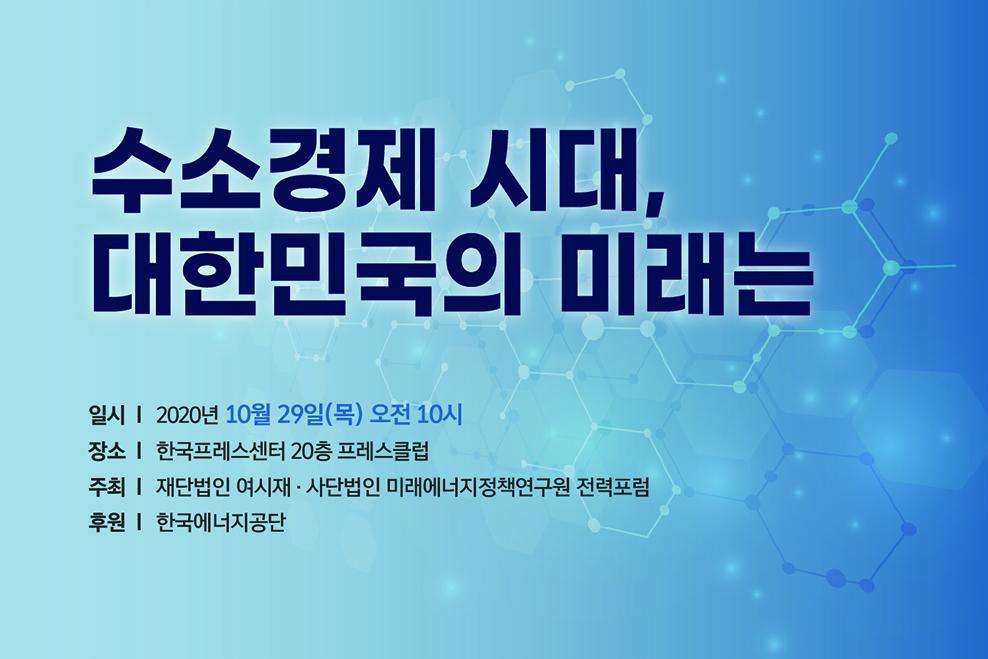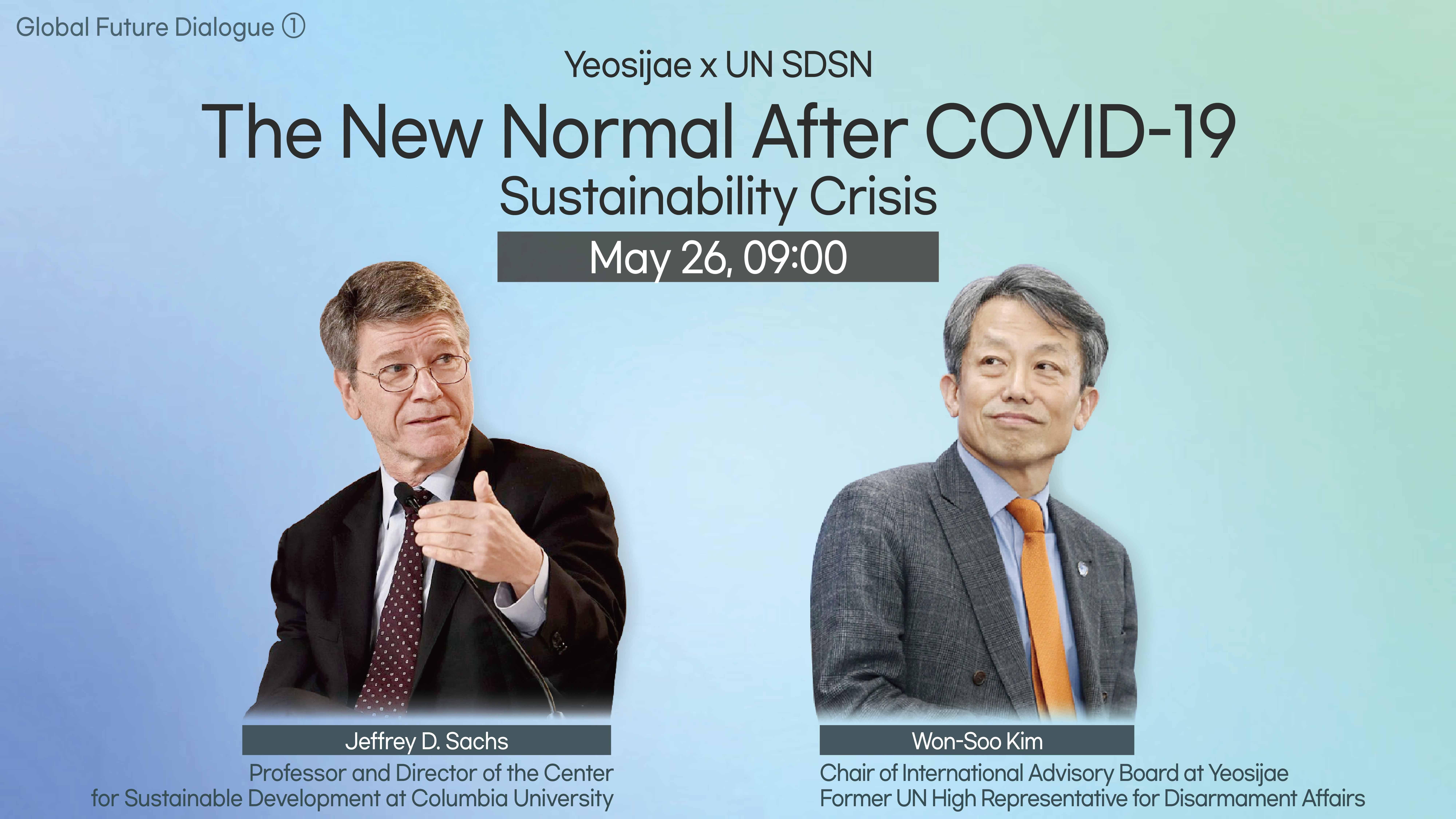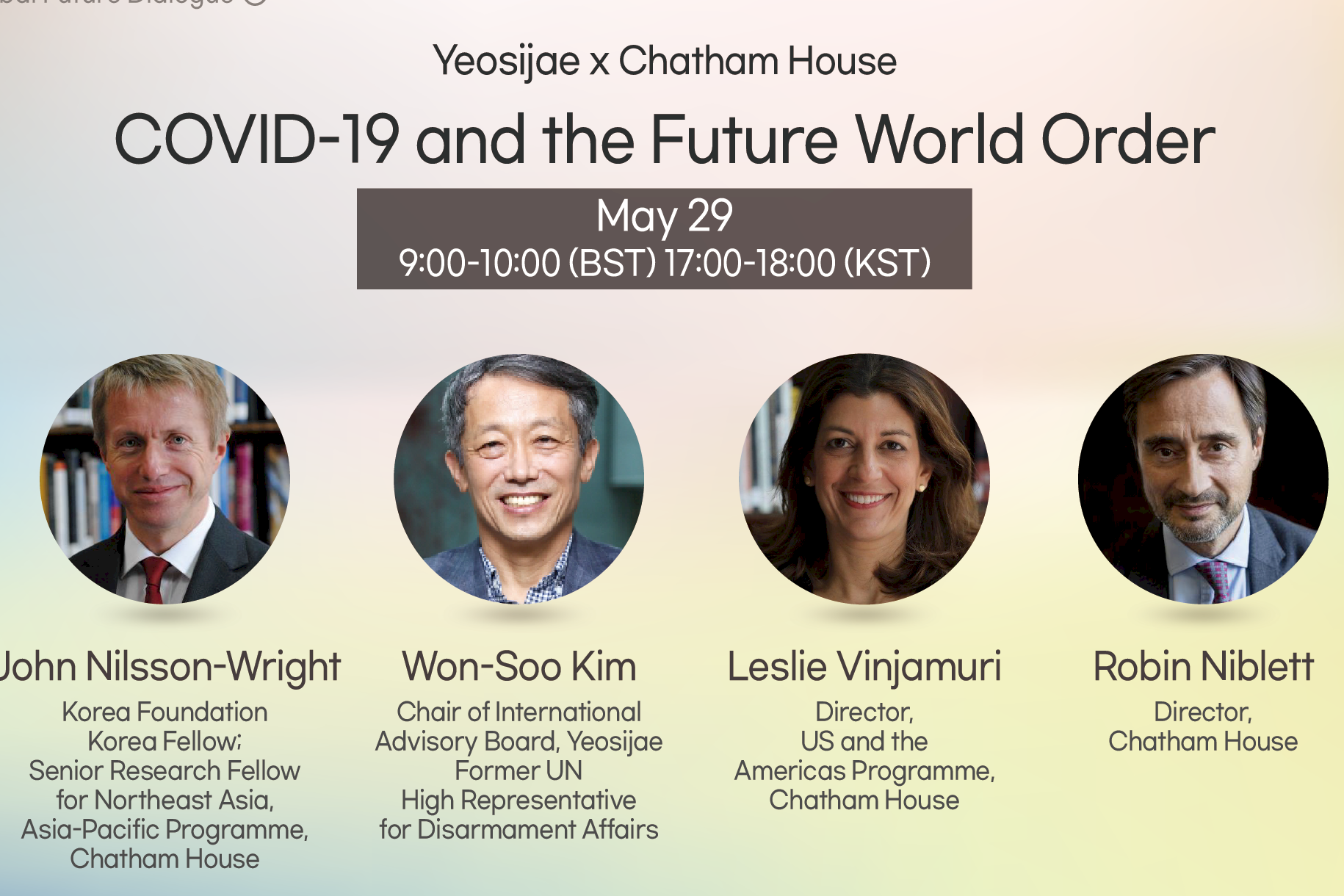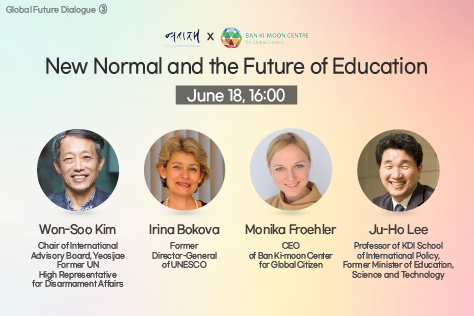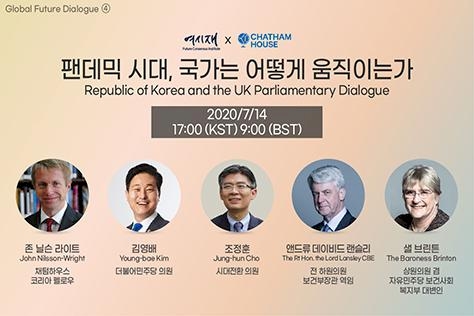Please join Yeosijae as we build a brighter future for Korea. Create your account to participate various events organized by Yeosijae.
- Insights
- |
- Future Industries
- Global Order and Cooperation
[Global Future Dialogue ⑤] Global order and America’s role in a ‘G0’ world - A conversation with Prof. Joseph S. Nye Jr.
Joseph S. Nye Jr. on moral foreign policy and the 2020 U.S. presidential elections
Pacifism without an alliance may produce immoral results
Political leaders should also be educators
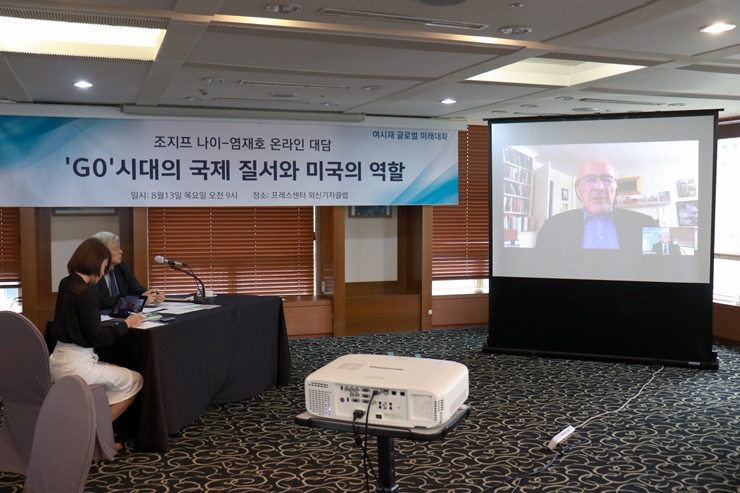
The novel coronavirus (COVID-19) is having an enormous impact on every aspect of daily life. Not only are there individual-level changes that require people to wear masks all the time, but there are also global-level changes. The international community is still unable to respond effectively to the spread of infectious diseases worldwide. The so-called powerful and advanced countries, including the United States, China, and European countries, have been rather helpless in dealing with COVID-19.
The pandemic has exposed a global leadership vacuum. The conflict between the United States and China is shaking the global order. To diagnose the current situation, the Future Consensus Institute (Yeosijae) has been hosting various webinars with leading scholars to discuss how the world will change after COVID-19. On August 13th, Yeosijae held a webinar on “the global order and the American role in a G0 era” at the Seoul Foreign Correspondents’ Club. The webinar was chaired by Professor Jae-Ho Yeom, former President of Korea University, and the speaker was Professor Joseph S. Nye Jr., University Distinguished Service Professor, Emeritus, and former Dean of the Harvard’s Kennedy School of Government.
Morality in foreign policy
Professor Joseph S. Nye Jr. is a renowned American political scientist who advocated the theory of interdependence in international politics and wrote a book titled Understanding International Conflicts: An Introduction to Theory and History. Professor Nye, known for promoting the idea of “soft power,” served as Assistant Secretary of Defense for International Security Affairs, Chair of the National Intelligence Council, and Deputy Under Secretary of State, and won distinguished service awards from all three agencies. In 1995, when he was the Assistant Secretary of Defense under former U.S. President Bill Clinton, he published a report on the United States security strategy toward East Asia and the Pacific area. Moreover, this year, Professor Nye published a new book titled Do Morals Matter?: Presidents and Foreign Policy from FDR to Trump to examine the role that morals played in the foreign policies of U.S. presidents since World War II.
Professor Nye stressed that morality is not just an ideal concept, but an important factor in national interests and international leadership. He emphasized that it is wrong to say that only national interests matter in diplomacy, and morality is not a matter of concern. In other words, putting an emphasis on morality is crucial for national interests.
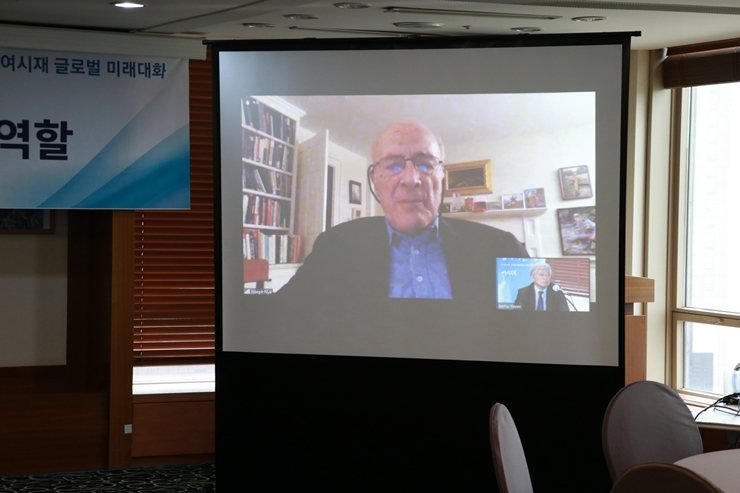
Trump’s (incomplete) foreign policy still receives a poor grade
Professor Nye ranked the last fourteen presidents in terms of the morality of their foreign policy decisions. As a result, the presidents who developed policies with an interest in morality showed international leadership and broadened national interests while inducing international cooperation. On the other hand, the ones who did not pay attention to morality were unable to demonstrate international leadership and failed to expand national interests in the end.
In a comparison of the fourteen presidents, Professor Nye put four presidents in the top tier: Roosevelt, Truman, Eisenhower, and George H.W. Bush. In the bottom tier, he included Lyndon Johnson, Richard Nixon, and Donald Trump. Even though President Trump’s term is incomplete, Professor Nye criticized Trump for ignoring morality and making wrong policy decisions based on narrow-minded national interests. Through a comparison of the previous presidents, Professor Nye pointed out that the moral or immoral aspect of a leader can make a big difference in history. From this point of view, Professor Nye lamented that the United States is going through the darkest times in history, judging that President Trump’s current policy lacks international leadership due to his lack of interest in morality.
Professor Nye presented the concerns and policy decisions that President Harry Truman showed during the Korean War as an important example. UN forces commander Douglas MacArthur, who was struggling with the Chinese intervention at the time, suggested the use of more than 20 atomic bombs against the Chinese forces. However, President Truman decided not to use the atomic bomb, considering the situation in which civilian casualties could be made.
The means and consequences must be as good as the intentions
Professor Nye stressed that intentions should not be solely emphasized when evaluating the morality of the U.S. president’s policy. In addition to the intentions, he said that all three factors, including means and consequences, must be good for a positive evaluation. Regarding the gap in international leadership as a specific concern, he said that international cooperation is a moral and an inevitable matter because there are issues that no country can solve alone, such as climate issues and epidemics. He added that international cooperation under the leadership of the U.S. and China, with active participation from major countries, such as South Korea and Japan, is most desirable. Regarding South Korea, he praised the remarkable growth in the economy and the establishment of democracy. In particular, he said that South Korea has emerged as an exemplary model by showing its national capabilities in taking measures against COVID-19; and thereby, South Korea should also become a major participant in the international cooperation.
Regarding the relationship between the United States and China, Professor Nye said the U.S. should define China as a cooperative competitor and respond as such. He said the reason China should be viewed as a competitor is that he believes that China will never become a liberal state. It is expected that China will not keep the values that liberal countries uphold, and in that case, it is appropriate for the United States to respond decisively. However, he emphasized that cooperation with China is necessary to respond to climate change and epidemics. He stressed that if the United States is buried in the concept of national interests in a narrow sense, it can focus only on competing with China. However, if national interests and morality are considered with a broader perspective, the U.S. should cooperate even with China.
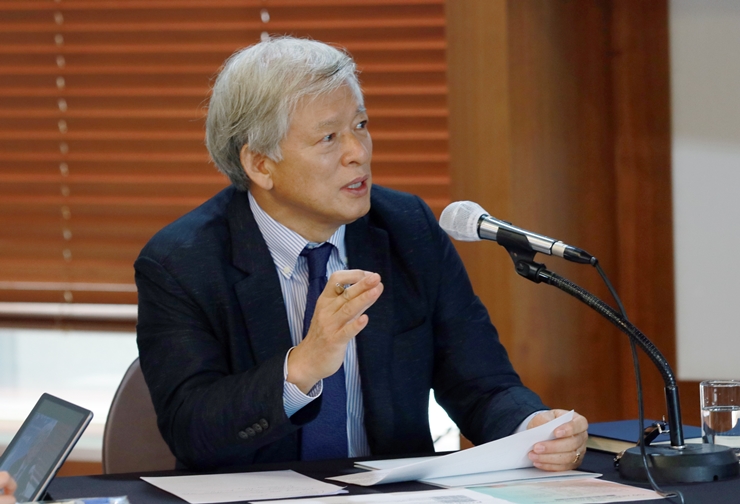
The Korea-Japan relationship may be the most sensitive subject concerning morality in diplomacy. Professor Yeom presented the issue of morality surrounding Korea-Japan relations as a hot potato. In the case of Korea, the perception that Korea has a moral superiority is dominant because Japan colonized Korea in the past. Professor Yeom analyzed that as a result, there is a tendency for South Korea to avoid making compromises with Japan, thinking of this engagement as burdensome. He pointed out that the bilateral relationship is currently, in fact, in a crisis because of the excessive focus on morality from their shared history.
In response, Professor Nye emphasized again that placing importance on morality requires examining the intentions, means, and consequences, and pointed out that defining Japan as an immoral entity may lead to faults in the results. He commented that today’s Japan is different compared to the immoral Japan from 1910. Therefore, if Korea treats Japan in a past-oriented manner, it may feel good for the time being, but it would only lead to more anger and worsen the outcome. Professor Nye stated that Japan is not a devil and advised that it would be the best for Korea and Japan to work together to make a better world.
The alliance is like having insurance, and pacifism without an alliance may produce immoral results
A question from the audience asked what Korean policy should look like in a situation where Korea is forced to choose between the United States and China. Professor Nye did not give a response to the point that Korea is sandwiched between the U.S. and China but rather suggested that Korea is stuck between China and Japan. In that case, he said the United States could become a good partner in terms of security. He explained that South Korea’s alliance with the United States is like having insurance. However, he stressed that he is against the idea that Seoul should cut ties with Beijing just to maintain its military alliance with the United States. He added that it is reasonable to strive for economic prosperity, and there is no problem in interacting with China for economic reasons.
Professor Nye avoided making an immediate answer to a question about the Moon administration’s policy toward North Korea. He noted that if we first lift military preparedness and conduct diplomacy based on pacifism without an alliance, the result will be immoral. With skepticism, he said we are even unsure whether North Korean leader Kim Jong-un is willing to respond to pacifism.
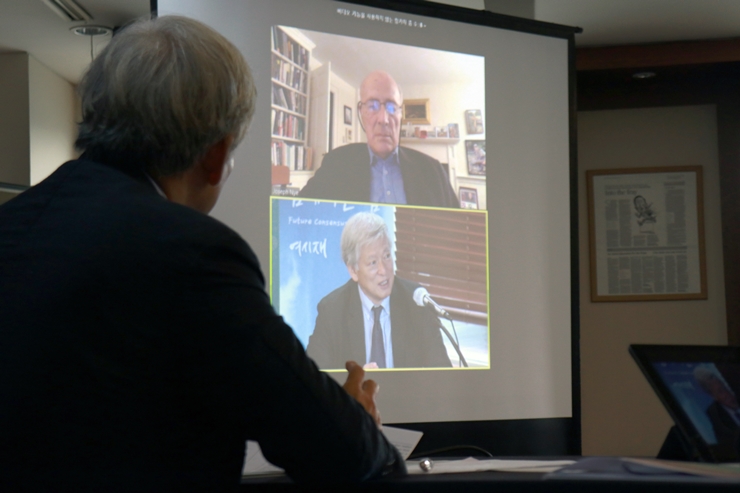
Political leaders should also be educators
Professor Yeom mentioned that it was interesting that Professor Nye emphasized the educational aspect of evaluating the results. In response, Professor Yeom asked about the impact on the people regarding the morality of the leaders. Professor Nye explained that being a political leader requires the role of an educator in addition to the role of a decision-maker. Political leaders, he added, should explain to the people what the world is like, what choices we are faced with, and what actions will help us better in the long run. Professor Nye criticized Trump for neglecting the role of an educator and dividing the United States. He asserted that this is an inexpensive way to garner support by portraying the other side, be it a group of people or countries, as enemies.
It is not common to emphasize morality in diplomats. However, numerous examples of cases where Pres. Trump’s foreign policies have been inconsistent with common sense have occurred, and many factors that have been taken for granted are being reexamined. In that respect, Professor Nye’s emphasis on morality is timely and can be interpreted as a result of reflecting the times. The Professor’s discussion on morality which focuses on consideration of all three factors, intentions, means, and consequences, speaks its peculiarity. In addition, separating the national interests in a narrow sense from national interests viewed with a broader sense and including an emphasis on morality in the broader concept of national interests are praised as an excellent approach. It is important to accommodate and develop Professor Nye’s concept of morality and continue to make an effort to prevent a situation where people blinded by small interests cloud the world and eventually cloud themselves as well.
This text was originally published on Yeosijae’s Korean homepage on August 20th, 2020.
< Copyright holder © TAEJAE FUTURE CONSENSUS INSTITUTE, Not available for redistribution >

